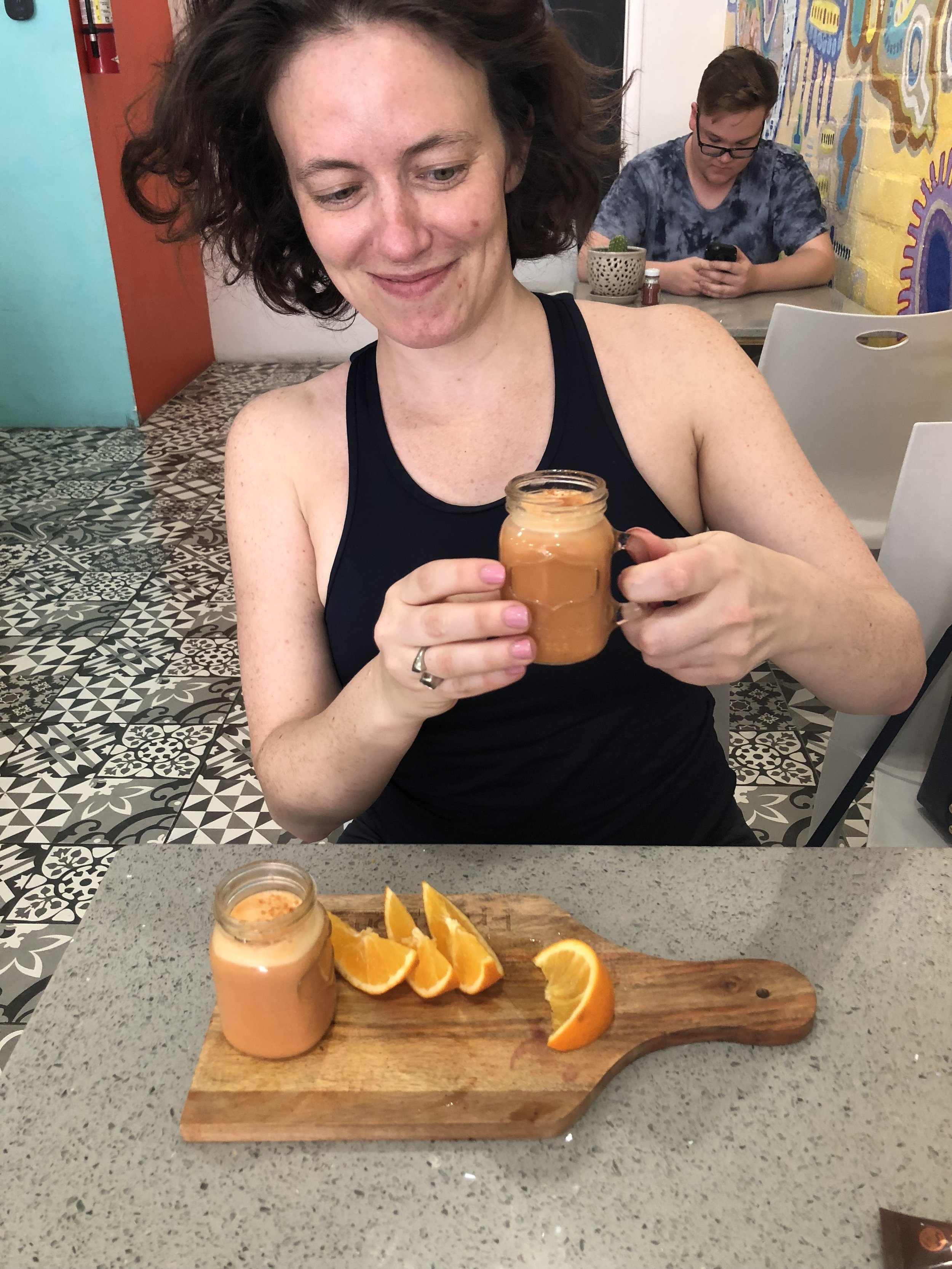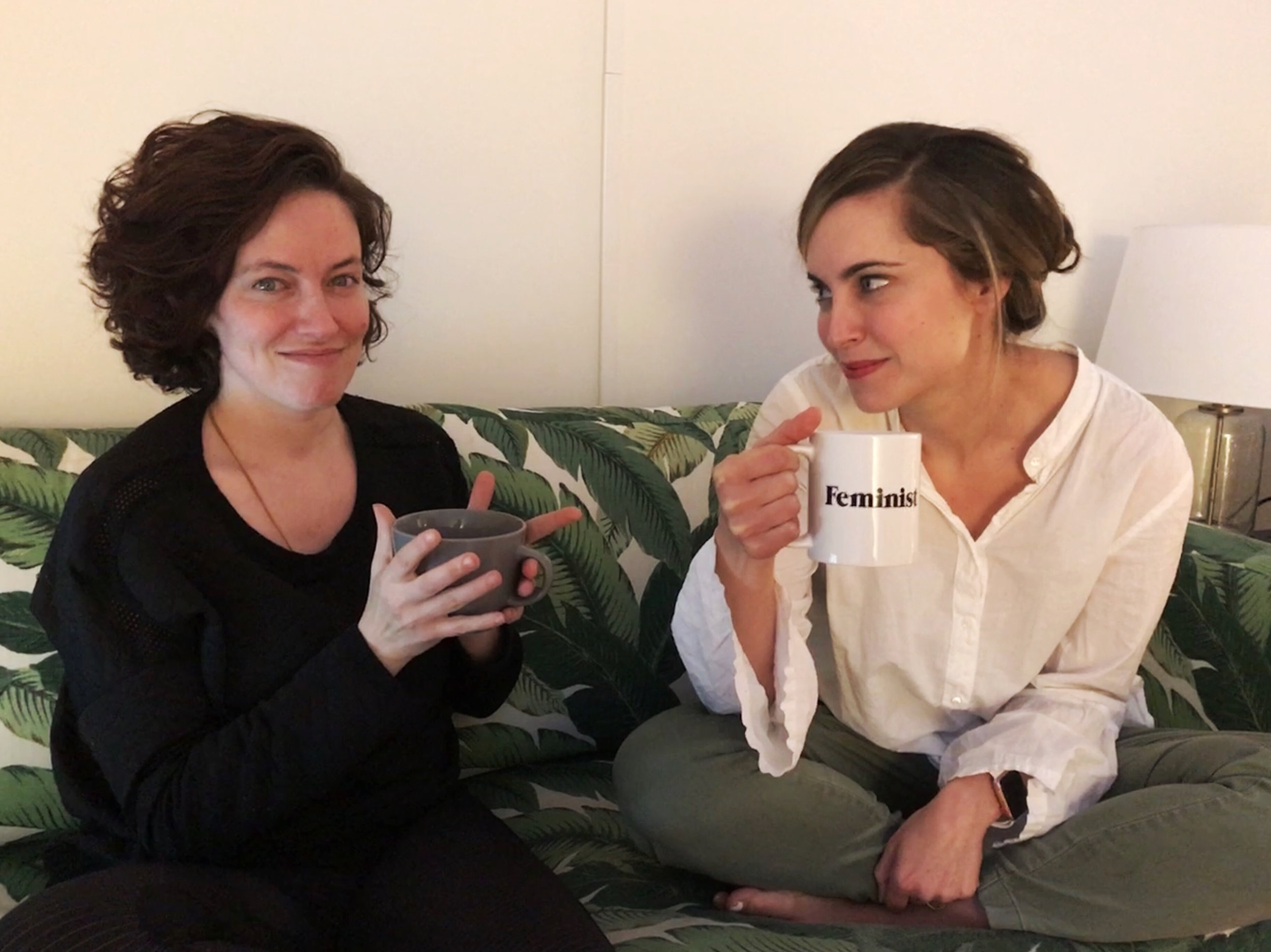Lisa McLaughlin, Workit Health’s Co-Founder and Co-CEO, just celebrated 16 years sober.
Recovery is not a static thing; it changes over time. Here are 16 ways Lisa’s recovery has evolved:
1. I feel confident defining my own terms of recovery.
For me, that looks like abstinence from most substances. I make exceptions for SSRIs, herbal tinctures, and CBD oil for back pain. I also eat Tiramisu and keep my 12-step chips. I believe we chart our own paths. I thank the Bay Area Recovery scene for showing me a thousand beautiful ways to bloom.
“I thank the Bay Area Recovery scene for showing me a thousand beautiful ways to bloom.”
2. I trust my thoughts.
I no longer believe there is a “stranger in my brain who is out to kill me,” or that I need to have a sponsor or a friend in recovery “think for me.” I call my sponsor when I’m stressed or sad or triggered and tell her how I’m feeling.
3. I map my triggers using Workit.
In the past, I thought triggers were random and unpredictable. Now I realize there’s a formula for mine. Top triggers for me are holidays, grief about mortality, being out of shape, hormonal flux, and jealousy. Evenings from 9-12 when I’m thinking about any of these things … are a hot spot. I use Clue to track my cycle and it makes a world of difference.
4. I use a habit checklist as a go-to coping tool when a trigger hits.
Sometimes it’s a list on paper, but mostly I use coach.me or other tools to track my status: I tackle cravings by going to the gym, keeping in touch with friends, learning something new (TED Talks are great for this), meditating, or doing breathwork. At Workit we call these “coping cards.” There are 20 tools I mine—once excessive, often excessive.
5. I hang out with a lot of people on Medication-Assisted Treatment and do Workit Together meetings with them.
I look for areas where I’ve been complacent in only hanging out with my friends who all have 10-15 years clean and have steered clear of the touch part of giving back. We’re thinking of hosting a MARA meeting at Workit.
6. I speak publicly about my experience in recovery.
Lots of weird things happen when I do this. People ask me if I’m unfit to be a leader at Workit because of my past, people “suggest” that it might make more sense to de-emphasize my story … I love every minute of their discomfort because I know it means the recovery closet is going away sooner than they think.
7. I support and mentor Women entrepreneurs as a form of service.
Many of the women I’ve met on the path to recovery were blocked entrepreneurs who had misdirected that energy into their addiction. There are a lot of parallels between drug addiction and entrepreneurship. Both require a high appetite for risk, the ability to put yourself out there without knowing how cold the water is going to be, the ability to keep getting it done at all costs. People who use a lot of drugs are great at all these things.
8. I deeply embrace the Woo.
I embrace it despite being raised Baptist and despite years and years of academic training discrediting “new age” wisdom.
9. I rely heavily on Cognitive Behavioral Therapy to build my resilience and reframe my thinking patterns.
Historically, I was more of a war story fan. These days, I’ll take positive thinking that focuses on solutions over a qualifying monologue any day.
10. I am developing a personal advisory board for many different aspects of my spiritual and professional life.
What this looks like for me is reaching out to people I’m deeply inspired by and following their work in a more dedicated way. Since I’m slightly socially anxious, it will likely be some time before these individuals know they are on my advisory board. I used Joyable to work on my social anxiety, it helped a ton.
11. I rely on my co-founder Robin.
We met in AA, so we share that, but we also share this wild path of growing a social enterprise in a male-dominated industry, working on a stigmatized topic during a massive crisis that people still want to gloss over and ignore. We both have a love for learning and spiritual growth. She is my starred phone number, my saving grace, and the person who sees all 8000 layers of me (often before I do). She’s a sage.
12. I stay accountable on social when I’m feeling isolated.
Sometimes this means tweeting to #recoveryposse, posting to a FB group of people in recovery, posting in a private Workit group, or listening to audio shares on the Workit Health site. There are a thousand ways to not feel alone today.
13. I read.
At least 10 minutes a day. At Workit, we’ve got a book club, and we’re currently reading “The Recovering” by Leslie Jamison. Join us 🙂
14. I do dreamscapes and journaling on the Recovery grad school of my dreams.
It’s still not out there, but we’re doing our best to crank it out quickly at Workit.
15. I keep up with the science.
I’m a biohacker and spent a lot of time learning about how my genetic profile set me up for addiction and what can be done both preventatively and prophylactically to respond to that legacy. Turns out there’s a lot. Another blog post for another day.
16. I don’t identify as an “addict.”
I’m just a human with a set of preferences, and one of them is a desire to be as conscious on this earth as I can. I choose recovery today, it’s not so much the forced feeding it was in my heathen days.










